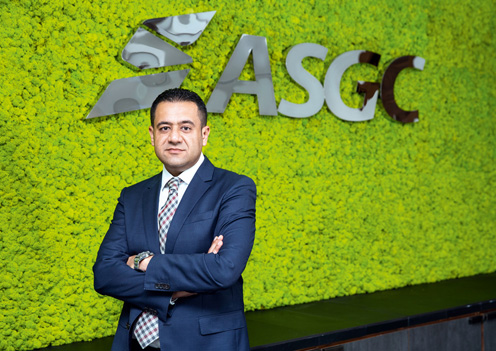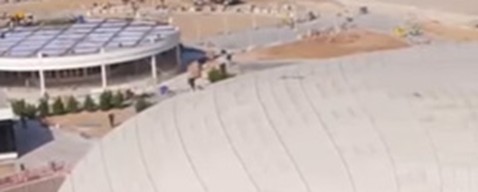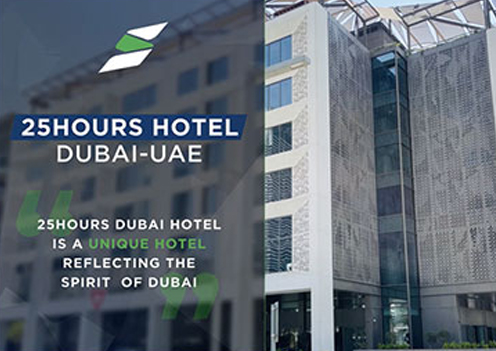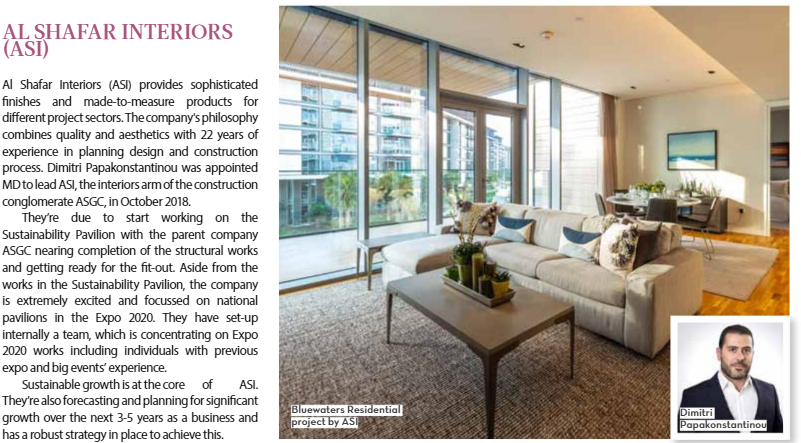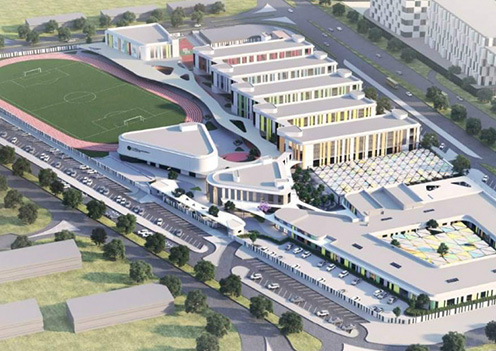ASGC’s Mohamed Marzouk examines why supply chain management and ethical sourcing are key to green projects
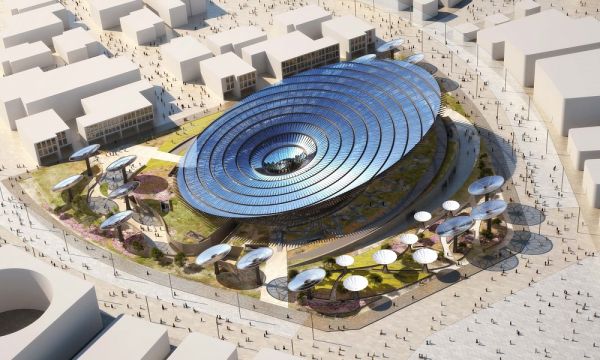
The UAE is known for its ground-breaking architecture. Projects such as the Burj Khalifa, Etihad Museum, the Louvre Abu Dhabi, Mohammed Bin Rashid Library, and the upcoming Expo 2020 are setting new global precedents by pushing boundaries. But while the world recognizes the nation’s most iconic buildings, behind the scenes there is a mounting commitment to not only build incredible structures, but to do so sustainably.
Sustainability already plays a key role in the UAE’s National Agenda 2021. In places like Dubai, a Municipality decree ensures that all new buildings from 2014 onwards meet the standards of the Green Buildings Regulations and Specification. These regulations take into account that residential, commercial and public buildings globally are estimated to account for upwards of 30% of the world’s energy consumption.
While the implementation of rating systems is a positive move, there is still much more that needs to be done.
Through ASGC’s own work on the Expo 2020 Sustainability Pavilion, we have looked for ways to exceed Leadership in Energy and Environmental Design (LEED) Platinum standards as the pavilion will be the centerpiece for the Expo’s green theme. For this or any other UAE construction project, today the most crucial element of the drive-for-green is found in the management and sourcing of construction materials.
‘Green’ building materials are usually characterized by being energy saving, having a long life-cycle, having a high degree of recycled content, or significantly reducing pollution in the environment. According to one report from Navigant Research, the worldwide market for green construction materials will grow to more than $254 billion in 2020, up more than $100 billion from what is was in 2013.
People typically associate resource conservation with construction materials such as wood, water, or OGP products, but there are many others that are essential to the industry. Sand, for example, is a major component of the building process; it is used to make asphalt, concrete, glass, as well as to make molds for casting metal and more.
Around 30 billion tons of sand are used every year for the production of concrete alone. We think of sand as being prolific – after all, we’re surrounded by it, living in a region with vast swathes of desert landscape. Yet not all sand is valuable, and most desert sands cannot be used in construction or glass-making. The truth is that usable sand, typically found on beaches or in riverbeds, is a highly exploited material, and we are facing a global shortage.
Developers need to look to their supply chain and ensure sourcing from contractors who follow the highest standards of ethics and environmentally-friendly practices. To use sand as an example once again, the global construction boom in recent years has fueled illegal trafficking which has a negative impact on the environments the sand is stolen from. Understanding the source of construction materials is therefore an essential practice to ensure sustainability from end to end – as is taking into consideration the impact of transporting, processing and fabricating materials.
When we talk about material sourcing, the reuse and recycling of construction components is an important consideration, too. Frost & Sullivan has predicted that by 2020 the GCC would be generating up to 120 million tonnes of waste per year, and those in the construction industry are being hard-pressed to demonstrate recycling-savvy practices.
This factor is already considered by the LEED building rating system. Over the last 1-2 years in particular, advanced production technology—combined with thorough research and innovation in materials science—have given the UAE construction market a wider and more versatile range of reused building materials.
The biggest challenge to all of this, of course, is that the construction process is usually fragmented and involves several parties with different objectives. It is for this reason that we also see developers in the UAE increasingly search for full-service contractors who can deliver control over all aspects of design and build – from steel engineering to MEP and interiors.
As the world looks towards the UAE in the lead up to Expo 2020, the construction market’s decision to prioritize management and sourcing of green construction materials will be even more important in realizing the nation’s sustainability agenda.
Mohamed Marzouk is Technical Director at ASGC, a vertically-integrated construction group that was awarded the construction contract for Expo 2020’s Sustainability Pavilion and is best known for delivering turn key special projects across the UAE.
Source: meconstructionnews.com
